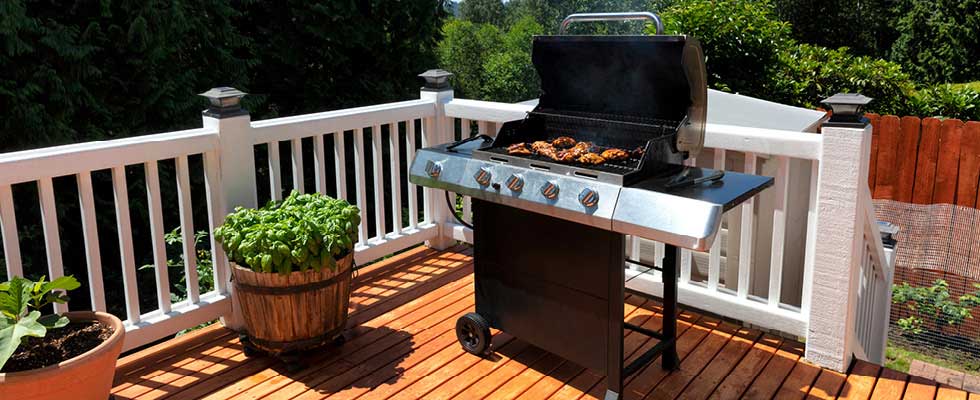
On March 21, the U.S. Court of Appeals for the Fifth Circuit (in a 2-1 decision) reversed a multimillion-dollar jury verdict in a case arising from a barbeque grill cylinder flash fire incident. A Fort Worth, Texas, jury had awarded $7 million to the plaintiff. After the trial, this amount was reduced to $1.7 million by the trial judge. The plaintiff’s claim was focused on the “face seal” inside the cylinder valve. The case is Johnston v. Ferrellgas Inc.
Flash Fire
On July 24, 2019, Sidney Johnston purchased a 20-pound propane cylinder at Lowe’s. This cylinder had been manufactured in 1999 and requalified in 2017. It had been filled and inspected by Ferrellgas in February 2019 and was shipped to Lowe’s, where it sat in an outdoor display until Johnston purchased it.
On July 26, two days after he had purchased the cylinder, Johnston connected it to his Char-Broil grill and lit the burners to cook a meal. After some time had passed, he checked the progress of the cooking. He later said that he observed that the flame was low or out, and the grill was not heating up properly. He then claimed that he decided to check the connection between the tank and the grill, but when he opened the lower cabinet of the grill, there was a flash fire.
Lawsuit
Johnston sustained first- and second-degree burns over 8% of his body, primarily his hand, stomach and face. He was treated as an outpatient and was not admitted to the hospital. He returned to work on a part-time basis within a month of the incident and was working full time a month after that. His treating burn doctor testified that he had made an “excellent recovery,” that he had “no significant scarring,” and that he “is healed at this point.” He added that he did not anticipate that Johnston’s injuries would prevent him “from achieving full normal activities.”
Johnston and his wife sued Char-Broil and Ferrellgas. He claimed residual nerve damage in his hands, with resulting pain and numbness. He alleged that he could not garden or golf as often as before the incident. He also said he has anxiety when near propane or fire. His wife claimed loss of consortium. The Johnstons subsequently entered a confidential settlement with Char-Broil and the case went to trial against Ferrellgas.
Initially, the Johnstons asserted that the cylinder valve was 17 years old and too worn to achieve a tight connection. They added that, in their opinion, the cylinder was not properly inspected before it was provided to the plaintiff. The defense responded that it inspected the cylinder and the valve outlet, which were in proper condition when the cylinder was delivered. It also noted that its inspection was in accordance with NFPA 58.
‘Face Seal’
By the time of trial, the Johnstons had enlisted two expert witnesses to attack the condition of the cylinder. Based on an examination five months after the incident, they determined that the connection between the valve outlet and the hose to the grill burners was not closing properly, and that this was the source of the leaking gas that ignited and caused the plaintiff’s injuries. Specifically, they pointed to a deteriorated “face seal,” which is a type of O-ring inside the valve that is used to ensure the connection between the valve and the cylinder is tight and secure. This deteriorated face seal allegedly rendered the cylinder defective and unreasonably dangerous, exposing (the Johnstons claimed) Ferrellgas to strict product liability for their damages.
The defense argued there was no evidence that the seal was deteriorated at the time of the incident or at the time the cylinder left the possession of Ferrellgas about six months before the incident. In fact, the damage to the seal could have been caused by the intense heat of the incident itself.
Disregarded Warnings
In addition, Ferrellgas argued there was a plausible alternative cause of the cylinder leak that the Johnstons’ experts could not rule out. A loose connection between the valve and the regulator hose could have been combined with a sufficient side load (Johnston could not recall whether he manipulated the cylinder while checking the connection) to cause the leak, even if the valve was not in defective condition.
Finally, the defense examined Johnston’s role in causing the incident. It pointed to the fact that he failed to follow the warnings on the cylinder and in the instruction manual. Specifically, he left the burner on before inspecting the tank connection, didn’t tighten the connection properly, used the cylinder out of its proper position and manipulated the connection while gas was flowing.
‘Off the Rails’
The jury found that the fault of both Ferrellgas and Johnston caused the incident, but allocated 93% of the fault to Ferrellgas and only 7% to Johnston. It assessed Johnston’s damages at $7.5 million, which was then reduced to $7 million based on Johnston’s 7% share of fault.
At this point, the trial judge stepped in. He used a legal process known as remittitur to reduce the jury award to $1.7 million. In his ruling he stated that he had “never seen a jury go off the rails like this,” and that the amount of the award was “totally unsupported by the evidence.”
Reversal
On appeal, Ferrellgas argued that the Johnstons’ product defect claim failed because there was not sufficient evidence to show the cylinder was in defective condition at the point when it left Ferrellgas’ possession some five months before the incident. The Johnstons had argued that the face seal inside the valve cylinder was degraded and rendered the cylinder defective. However, the admissions made by their own expert proved fatal on this point. He stated on cross examination that he simply could not say the face seal was defective when it left Ferrellgas. This was enough for the appellate court:
“In sum, the plaintiff’s expert admitted that he could not say that the tank was defective at the time it left Ferrellgas … There is no reasonable basis on which the jury could find the Johnstons met their burden.”
The court then turned to the negligence claim. This, it held, failed because it was dependent on a jury finding that the cylinder was defective at the time it left Ferrellgas. Since the court had previously held that there was insufficient evidence to support a jury finding on that point, it concluded that “the negligence claim must also fail.”
The decision was not unanimous, however. One judge dissented:
“The Johnstons presented sufficient evidence for a jury to reasonably conclude that the face seal deviated in quality from the planned output in a manner that was unreasonably dangerous, and the verdict should stand. Because the majority opinion fails to consider the evidence in the light most favorable to the Johnstons and misapplies Texas law — construing it to make recovery nearly impossible for injured consumers — I respectfully dissent.”
The decision is an important one for the industry, illustrating a path for the defense to potentially achieve a favorable result should such cases reappear in the future. On June 9, the entire Fifth Circuit Court of Appeals rejected the Johnstons’ final appeal, effectively ending the case.


